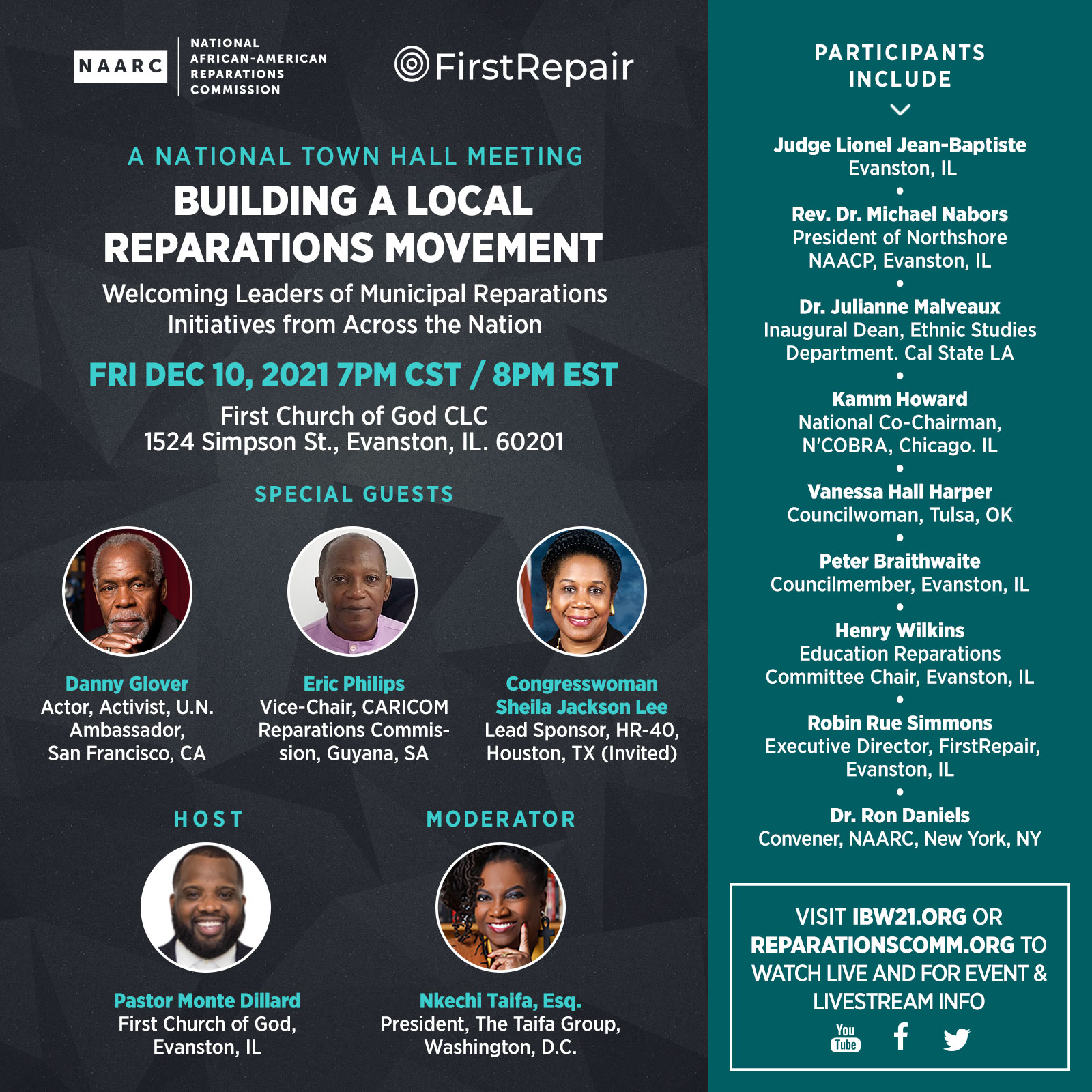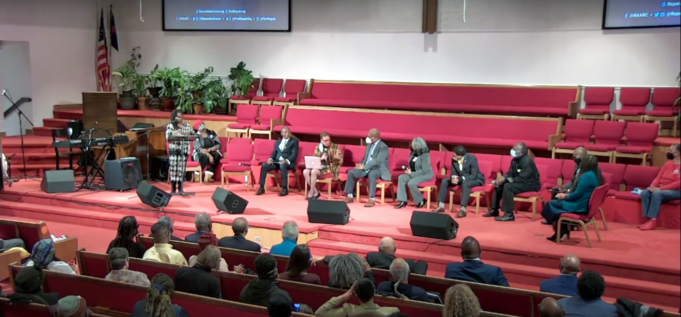The Journal of the American Heart Association reported that 75.5 percent of Black men and 75.7 percent of Black women developed hypertension (high blood pressure) by the age of 55, compared to 54.5 percent of White men and 40 percent of White women.
For nearly a decade, homes sold in mostly Black neighborhoods have been undervalued by an average of $46,000, compared to nearly identical homes sold in White neighborhoods, according to a Redfin analysis.
These disparities represent just two of the countless injustices inflicted upon Black people that are deeply rooted in systemic racism. Due to such unequal grounds, many activists and advocates argue reparations is the answer for collective justice owed to Black people.
Reparations is the making of amends for a wrong one has done, by paying money to or otherwise helping those who have been wronged and the action of repairing something. Activists have presented several propositions on how reparations should be issued including: monetary, land, education, and other forms of compensation and redress for historical and current wrongs. Reparations advocacy work is still happening nationwide.

Recently, the National African American Reparations Commission (NAARC) and FirstRepair, the nonprofit launched by former Evanston, Illinois City Council member Robin Rue Simmons, hosted a symposium attended by state and local reparations leaders from around the country.
“We haven’t had people all the country represented talking about redress for Black people since the Reconstruction,” stated Kamm Howard, co-chair of the National Coalition of Blacks for Reparations in America (N’COBRA). The National Symposium on Municipal Reparations was held Dec. 9-11 in Evanston, held Dec. 9-11 in Evanston, located about one hour from Chicago.
Black people in America are the only group that has not received reparations for state sanctioned racial discrimination, while slavery afforded many White families the ability to accrue tremendous wealth.
After the Civil War, Union leaders concluded that each Black family should receive 40 acres. General William Sherman signed Field Order 15 and allocated 400,000 acres of confiscated Confederate land to Black families. Some families were to receive mules left over from the war, hence “40 acres and a mule.”
However, after President Abraham Lincoln’s assassination, President Andrew Johnson reversed Field Order 15 and returned land back to former slave owners. In Washington, D.C., former slave owners were actually paid reparations for their former slaves which were considered “lost property.”
Mr. Howard explained the reparations fight has been going on a long time. “Reparations have always been on the lips of some of us in this country, with advocates including Callie House who co-founded the National Ex-Slave Mutual Relief, Bounty and Pension Association; the Nation of Islam; and other organizations like N’COBRA, but not mainstream America until now,” he said.
More than 60 leaders flew in for the Evanston symposium from local reparations movements in cities including Detroit; San Francisco; Boston; St. Louis; and Asheville, North Carolina.
Ron Daniels, a NAARC member stated, “Much of the weekend was focused on the Evanston Reparations Initiative. Evanston local reparations are the most structured municipal program in the country. I didn’t want people to go away with the notion that this model is the only formulation, there can be variations. Evanston adopted a variation that’s working here. However, that’s not the only way that it can be done,” he explained.
Council woman Simmons led the passage of the Evanston initiative in 2019 which involves $10 million to be collected from the city’s cannabis tax, “as an initial investment in reparations.” She explained that “Evanston reparations leaders have a lot more work to do to study the harm impact locally and then project the costs.”
Kathleen Anderson of Amherst, Mass., is co-chair of the New England chapter of N’COBRA. She stated that in Massachusetts, there is a statewide conversation about the issue and there have been efforts to pass a state reparations bill.
Rep. Sheila Jackson Lee (D-Texas) is the lead House sponsor for H.R. 40, federal legislation that would put reparations on the agenda of the full House of Representatives for the first time since its introduction in 1989 by the late Michigan Rep. John Conyers.
The Evanston gathering included a national town hall at First Church of God Christian Life Center which was also live-streamed and featured a keynote address by activist and actor Danny Glover.
N’COBRA is releasing its 2021 report, “The Harm Is to Our Genes: Transgenerational Epigenetic Inheritance and Systemic Racism in America.” Citing current scientific research, the seven-section report persuasively documents the ongoing impact of historical trauma on Black people, starting with the TransAtlantic Slave Trade. For more information and to read the report, visit www.ncobraonline.org. To view the Dec. 10 town hall meeting, visit: www.reparationscomm.org.
Shawntell Muhammad can be contacted at [email protected]













